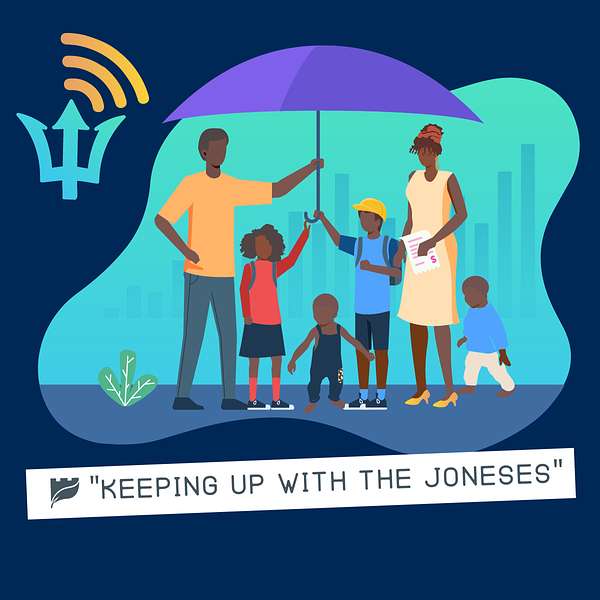
Do It Fuh Grantley
Do It Fuh Grantley
Ep. 24: Keeping up with The Joneses
We’ve never been more excited to be caught trying to keep up with The Joneses.
On this week’s episode, we’re joined by Dwayne and Kelly Jones of Debt Free Caribbean. Listen in as this captivating young couple share how they cleared over $67,000 in consumer debt in less than three years.
*
Episode Time Stamps:
[00:00:00] Introduction from Kim Howard
[00:02:51] Interview with Dwayne and Kelly Jones
[00:06:17] Getting their finances in order
[00:09:08] Cold hard sacrifices
[00:16:08] Delayed gratification
[00:17:15] Navigating COVID-19
[00:21:15] Reflecting on the journey
[00:30:00] Looking forward
[00:32:05] Closing comments
*
Grantley Speaking - An Episode Glossary:
Asset/Long term asset - An item that has value. It could be financial or “real”, that is
Credit card - A credit card is a borrowing tool used to buy items; you can also use it to transfer balances or withdraw cash. Once a month you receive a statement of your borrowing. You then have the option to pay off the full balance on the card, or an amount less than that, as long as you make at least the minimum payment. If you don’t repay in full, you’ll usually be charged interest. You’ll be given a credit limit – make sure you keep within this, as the charges for not doing so can be high.
Share secured loan - A share secured loan uses the assets in a share account, otherwise known as a savings account, to back up the loan.
Debt consolidation - This refers to taking out a new loan to pay off other liabilities and consumer debts, generally unsecured ones. Multiple debts are combined into a single, larger piece of debt, usually with more favourable payoff terms.
Snowball strategy/method – The snowball method is a common debt repayment strategy. This method focuses on paying down your smallest debt balance before moving onto larger ones.
Delayed gratification (Check out episode 5 in our first season) - The ability to resist the temptation for an immediate, but usually smaller, reward and wait for an enduring reward or achievement later.
Emergency fund - An emergency fund is a financial safety net for future mishaps and/or unexpected expenses. Financial planners recommend that emergency funds should typically have three to six months' worth of expenses in the form of highly liquid assets.
Portfolio - A portfolio is a collection of financial investments like stocks, bonds, commodities, cash, and cash equivalents.
*
Questions or comments? Send us a voice note on speakpipe.com/doitfuhgrantleypodcast.
For past episodes, please visit fortressfund.com/podcast.
Do It Fuh Grantley is produced by Fortress Fund Managers and Honeycomb Productions.
Want to get in touch?
- DM @fortressfundmanagers on Instagram or Facebook
- Email us at info@fortressfund.com